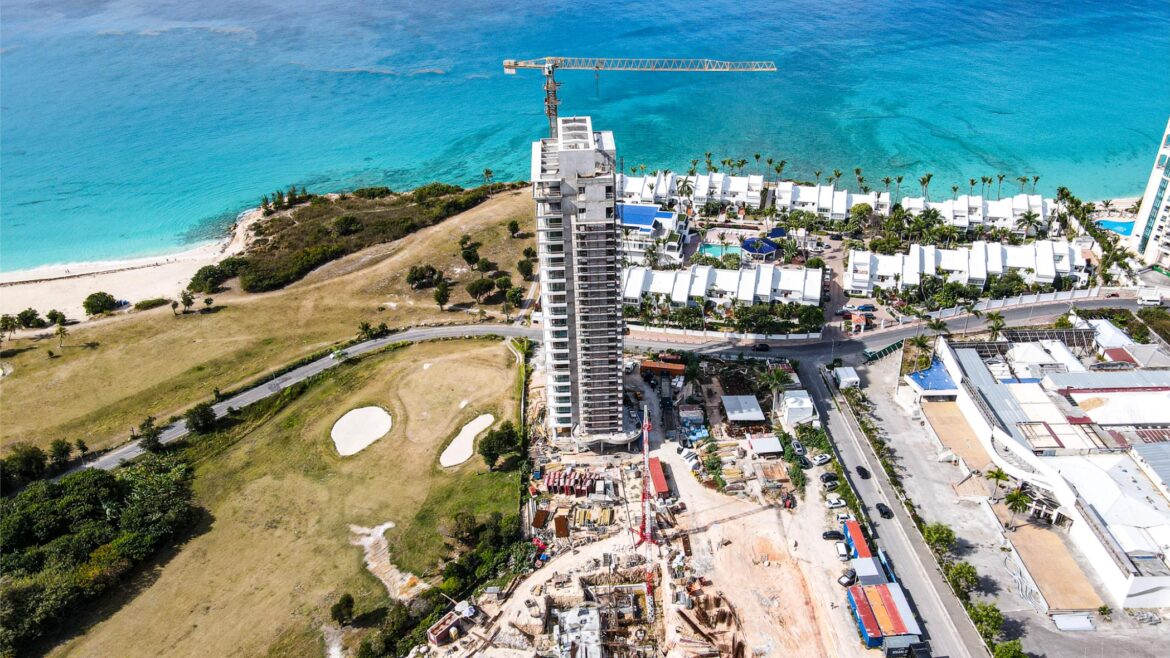Sint Maarten Condo Development Construction Laws
Understanding the construction laws in Sint Maarten is essential for any real estate project, and it’s particularly important for a new development. The legal framework is dynamic, with a mix of foundational ordinances and evolving policies.
1. The Building and Housing Ordinance (Bouw- en woonruimteverordening)
This is the cornerstone of all construction law in Sint Maarten. While it’s a historical law, it has been updated and provides the fundamental regulations for building activities.
- Mandatory Building Permit: The most critical rule is that no construction work can begin without a building permit issued by the Ministry of Public Housing, Spatial Planning, Environment, and Infrastructure (VROMI).
- Application Requirements: The ordinance outlines the detailed documentation required for a permit application, including proof of land ownership, comprehensive architectural drawings, and structural and electrical schematics.
2. Spatial Planning and Zoning
Sint Maarten is actively working to establish a comprehensive, country-wide zoning plan. This is a significant factor in all new developments.
- Case-by-Case Basis: Many projects are reviewed on a case-by-case basis. Developers must submit a master plan for their project to the Minister of VROMI for approval.
- Purpose of Zoning: The goal is to regulate the use of land, building heights, and density to prevent unplanned growth, protect the environment, and ensure infrastructure can support new developments.
3. Parking and Traffic Regulations
The government has a clear focus on managing traffic and ensuring new developments do not create congestion.
- Parking Standards: VROMI evaluates building permit applications based on established parking standards. For residential developments, the general guidelines are often two parking spaces for each unit with two or more bedrooms and one for each one-bedroom or studio unit.
- Developer Responsibility: Developers are responsible for providing sufficient on-site parking. Failure to meet these requirements can lead to the rejection of a building permit.
4. Condominium-Specific Legislation
For multi-unit developments, additional legal structures are required to define ownership and management.
- Deed of Division: This is a crucial, notarized legal document that legally divides a property into individual units and common areas. This document also establishes the Homeowners Association (HOA) and its bylaws.
- HOA Bylaws: These rules govern the rights and responsibilities of condo owners, including regulations on maintenance fees, use of common areas, and structural changes.
5. Environmental and Safety Regulations
Construction laws extend beyond just the building itself to include its impact on the environment and public safety.
- Civil Works Permits: A civil works permit is required for any activity that significantly alters the terrain, such as excavation or dredging.
- Fire Safety Regulations: Buildings must comply with fire prevention regulations, which includes requirements for fire-resistant materials and clear exit routes.
- Structural Integrity: The laws require that buildings are constructed to withstand various loads, including wind and potential seismic activity, to ensure public safety.
6. The Role of the Ministry of VROMI
The Ministry of VROMI is the central authority for all construction permits and regulations. They are responsible for receiving and processing applications, ensuring projects comply with all relevant laws and policies, and conducting inspections.
Important Note for Developers and Buyers: The legal landscape in Sint Maarten is always evolving. It is highly recommended to engage a qualified local real estate attorney or consultant who specializes in land use and construction law.

